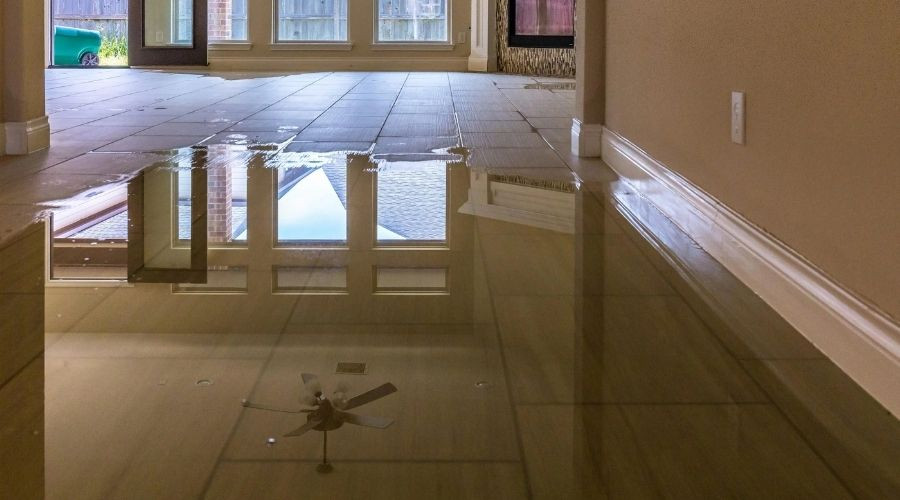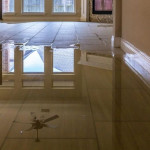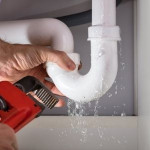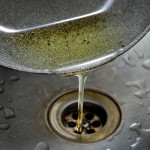Avoid These Common Plumbing Issues for a Care-Free Summer!
Plumbing problems can arise when they're least expected - often at the most inconvenient time possible. A clogged drain in the middle of a barbeque, a massive pipe leak in the wee hours of the night, a toilet that refuses to flush just as everyone's ready to hit the road for a family vacation… These are just a few of the plumbing disasters that can strike and put a damper on the summertime fun.
Fortunately, one can avoid the vast majority of large and small plumbing issues - and it's easier. A little knowledge and preventive maintenance go a long way to keep the home's plumbing system running smoothly. So read on for three easy ways to prevent plumbing mishaps all summer and beyond!
Inspect for Cracks and Leaks
 When it comes to preventing plumbing problems, there's no better way to start than by checking for leaks and cracked pipes. Water leaks can cost the average homeowner thousands of gallons of water every year - not to mention cause extensive water damage, compromise the home's structural integrity, facilitate mold growth, and even cause the foundation to shift or crack due to soil erosion. For these reasons, finding and fixing leaks as early as possible is critical.
When it comes to preventing plumbing problems, there's no better way to start than by checking for leaks and cracked pipes. Water leaks can cost the average homeowner thousands of gallons of water every year - not to mention cause extensive water damage, compromise the home's structural integrity, facilitate mold growth, and even cause the foundation to shift or crack due to soil erosion. For these reasons, finding and fixing leaks as early as possible is critical.
Some leaks are more accessible to spot than others, of course. For instance, a leaky drain seal or cracked drainage pipe from a second-floor toilet, sink, or shower will typically cause stains or warping on the wall or ceiling directly below the fixture. But if the institution is on the ground floor, the only giveaway may be the smell of mildew or mold (unless one can easily view the underside of the drain via a crawlspace or access panel).
Homeowners can easily check under sinks for water spots, moisture, or mold growth. But detection isn't quite as simple for a hidden pipe leak in a wall or underground. For hidden leaks, the best indicators include:
- Soggy spots in the yard
- The sound of running water
- Higher-than-normal water bills
- Weak water pressure
Apart from keeping a vigilant eye, homeowners can also have a professional plumber perform a thorough plumbing inspection every year or so to be on the safe side.
Be Careful Not To Put Grease Down Drains
 The next step for preventing a sudden plumbing emergency - a pipe clog - is to avoid disposing of grease or oil in the sink (or any other drain, for that matter). Oil and grease are sticky, heavy, and stubborn, so when they go down the drain, they hang out in pipes and contribute to the buildup of food waste, hair, and other debris. Some kinds of grease solidify when they cool, forming a clog all on their own.
The next step for preventing a sudden plumbing emergency - a pipe clog - is to avoid disposing of grease or oil in the sink (or any other drain, for that matter). Oil and grease are sticky, heavy, and stubborn, so when they go down the drain, they hang out in pipes and contribute to the buildup of food waste, hair, and other debris. Some kinds of grease solidify when they cool, forming a clog all on their own.
But even if they get washed down past the home's sewer line, they can still form blockages in the city sewer system and make things harder for wastewater treatment facilities. For these reasons, keeping as much grease and oil as possible out of the home's drains is best. Homeowners can let the used grease cool to room temperature and place it in a sealable disposable container. From there, it can either be taken to a local fire station or recycling center that accepts cooking oil or bagged and taken out with the rest of the non-compostable garbage.
Keep the Drains Clean
No matter how careful homeowners are about what they put down their drains, some amount of debris and gunk will inevitably build up inside drain pipes. To help keep the chances of a clog to a minimum, homeowners can simply clean or flush drains regularly using various methods.
Many people turn to store-bought chemical drain cleaners as both a remedy and a preventative measure for clogs, but these are less than ideal - especially when it comes to prevention. These products use harsh caustic chemicals to dissolve obstructions, but they can also eat away at the plumbing itself, release toxic fumes, and kill necessary bacteria inside septic systems. If possible, these should be used very sparingly or - even better - avoided altogether.
Instead, homeowners can pour gently boiling water down their drains every 1-2 weeks to help dissolve grime and kill bacteria. Every 1-3 months, homeowners can pour ½ cup of baking soda and ½ cup of white vinegar down their drains, let it sit for 15 minutes, then pour boiling water behind it. This will help break up obstructions and kill bacteria. One can use these two methods for sinks, tubs, and showers.
On top of this DIY maintenance routine, homeowners would do well to schedule a professional drain cleaning service every 1-3 years to thoroughly clean out their home's drainage system, as far down as the home's sewer line.
About Daniels Plumbing, Heating and Air Conditioning, LLC
Daniels Plumbing, Heating, and Air Conditioning have been Albuquerque's preferred home service company for over a decade. They offer financing, competitive up-front pricing, and 24/7 emergency service. They guarantee 100% satisfaction on every job, so homeowners know they're in good hands when they call Daniels for plumbing services in Albuquerque, NM!

































